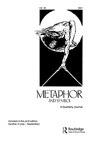“震撼世界”的大流行应对:在2019冠状病毒病大流行背景下对战争和竞争隐喻的讽刺、讽刺和讽刺使用
IF 3.3
3区 文学
0 LANGUAGE & LINGUISTICS
引用次数: 11
摘要
摘要新冠肺炎大流行促使一些政府承诺对其发动“战争”,并实施“世界性”控制机制。鉴于他们的成功有限,这些说法很快就受到了广泛的批评,使他们的夸张含义和比喻框架对他们不利。我们的论文关注的是英国公众辩论背景下的“隐喻逆转”案例。根据媒体文本语料库中的例子,我们确定了几种类型的分离,包括讽刺(即,含蓄地怀疑形象主张的含义)、讽刺(即明确谴责其合理性)和讽刺(即展示其假定的荒谬性),并参考了讽刺的理论模型(回声、伪装、心理空间结构)。总之,我们认为,政府政客对(即将到来的)成功的夸张比喻性宣称与媒体和反对派政客对其讽刺性揭穿之间的交流,对公共话语产生了矛盾的影响。一方面,它突出了政策和政策评估的对比,可能也有娱乐价值,但另一方面,也传达了重复、连续暴露夸张政府言论的经历。这反过来可能会导致对官方沟通的信任被侵蚀,认为这是不现实的,这可能会助长阴谋论的信念。本文章由计算机程序翻译,如有差异,请以英文原文为准。
“World-beating” Pandemic Responses: Ironical, Sarcastic, and Satirical Use of War and Competition Metaphors in the Context of COVID-19 Pandemic
ABSTRACT The COVID-19 pandemic tempted some governments to promise to wage “war” against it and implement “world-beating” control mechanisms. In view of their limited success, such claims soon came in for massive criticism, which turned their hyperbolic implicatures and figurative framing against them. Our paper focuses on such cases of “metaphor reversal” within the context of the British public debate. Drawing on examples from a corpus of media texts, we identify several types of the dissociation, including irony (i.e., putting the figurative claims’ implicatures in doubt implicitly), sarcasm (i.e., explicitly decrying their plausibility) and satire (i.e., exhibiting their presumed absurdity), with reference to theory models of irony (echo, pretense, mental space structuring). In conclusion, we argue that the seesaw of exchanges between exaggerated figurative claims of (imminent) success made by government politicians and their sarcastic-satirical debunking by media and opposition politicians has an ambivalent effect on public discourse. On the one hand, it highlights contrasts in policy and policy assessment and may also have entertainment value, but on the other hand, it conveys experiences of repeated, serial exposure of hyperbolic government rhetoric. This in turn may lead to an erosion of trust in official communication as being unrealistic, which may foster beliefs in conspiracy theories.
求助全文
通过发布文献求助,成功后即可免费获取论文全文。
去求助
来源期刊

Metaphor and Symbol
Multiple-
CiteScore
2.90
自引率
0.00%
发文量
23
期刊介绍:
Metaphor and Symbol: A Quarterly Journal is an innovative, multidisciplinary journal dedicated to the study of metaphor and other figurative devices in language (e.g., metonymy, irony) and other expressive forms (e.g., gesture and bodily actions, artworks, music, multimodal media). The journal is interested in original, empirical, and theoretical research that incorporates psychological experimental studies, linguistic and corpus linguistic studies, cross-cultural/linguistic comparisons, computational modeling, philosophical analyzes, and literary/artistic interpretations. A common theme connecting published work in the journal is the examination of the interface of figurative language and expression with cognitive, bodily, and cultural experience; hence, the journal''s international editorial board is composed of scholars and experts in the fields of psychology, linguistics, philosophy, computer science, literature, and media studies.
 求助内容:
求助内容: 应助结果提醒方式:
应助结果提醒方式:


